Deciduous (Baby) Teeth in Pets
Like humans, dogs and cats have baby teeth, called deciduous teeth, that are replaced by permanent teeth as the puppy and kitten grow and develop. The deciduous teeth begin to erupt around 2 to 3 weeks of age while the permanent adult teeth erupt between 3 to 7 months in dogs and 3 to 6 months in cats. When puppies and kittens lose their baby teeth, you might notice blood on their gum, lip, or tongue. This is normal. You may or may not find little teeth scattered around on the carpet or floors. If your pet swallows them, they will not cause any problems.
There are four types of teeth found in mammals:
- Incisors – incisors sit at the front of the mouth and help the animal cut and grasp food
- Canines – canines sit behind the incisors and are used to stab and tear food
- Premolars – premolars sit behind the canines and are used to grind food
- Molars – molars sit at the back of the mouth and are used to grind food

A tooth is divided into two parts – the crown and the root. The crown is the visible part of the tooth outside of the gum, while the root lies within the gumline and anchors the tooth in the mouth.
Normally, as the permanent tooth begins to develop, it will push against the root of the deciduous tooth. The body will then break down the deciduous tooth root until it can no longer be anchored in the mouth and eventually falls out. In some cases, however, the deciduous teeth remain in the mouth even as the permanent teeth come in. This is called persistent deciduous teeth and requires the surgical removal of the remaining deciduous teeth (see photo below).
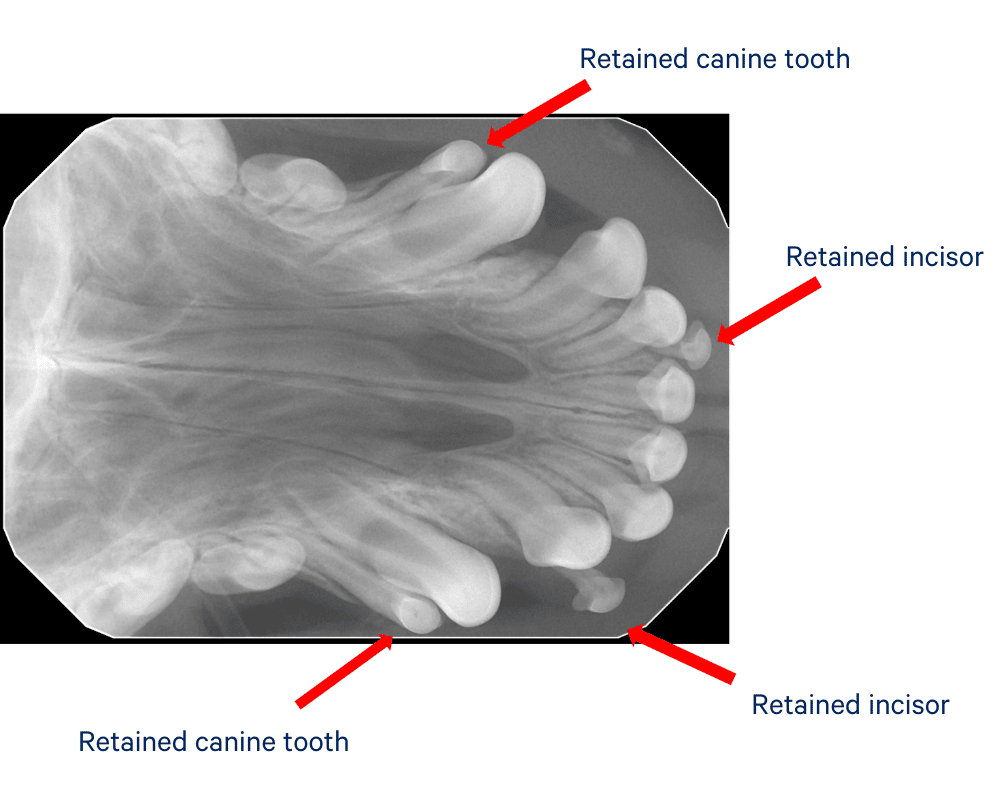
While extraction of persistent deciduous teeth can be tricky due to their long roots, it is important to remove the retained teeth as soon you or your veterinarian notices them as they can cause the permanent teeth to become misaligned or displaced in the mouth, leading to future dental problems and an increased risk for periodontal disease. The teeth typically affected are incisors and canines and are usually seen in small, toy breed dogs. The dental x-ray above shows a Maltese with retained incisors and canine teeth. The photo of the extracted teeth below shows the roots that did not dissolve. The third photo shows the puppy’s perfect smile after removal of the retained deciduous teeth.
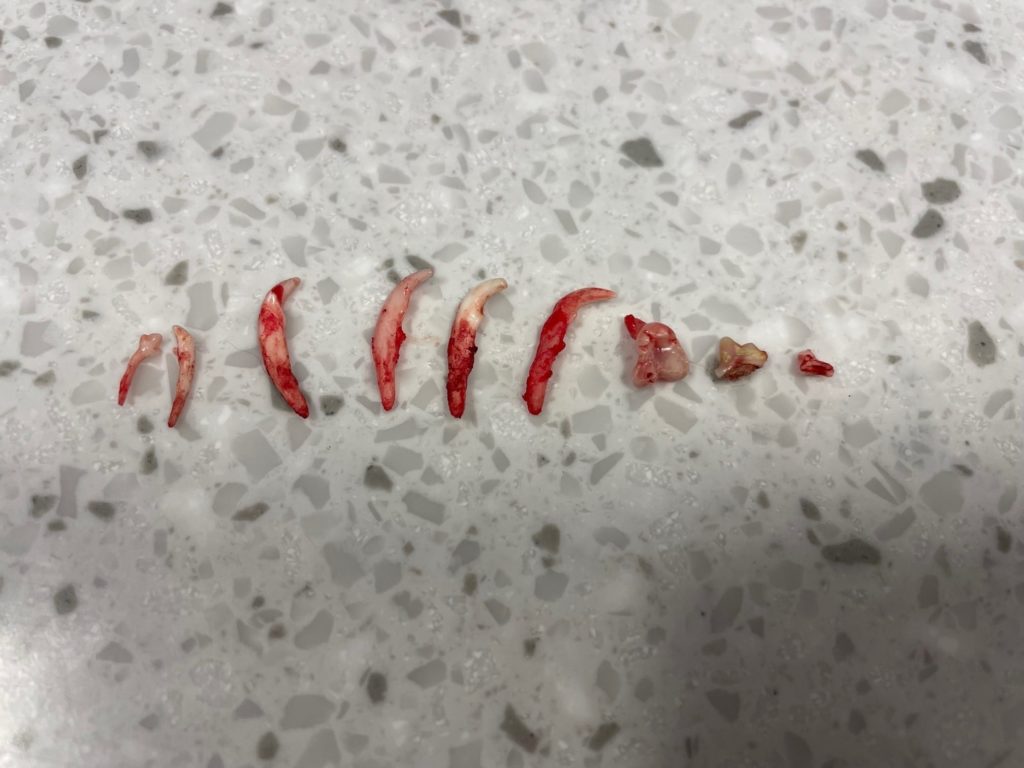
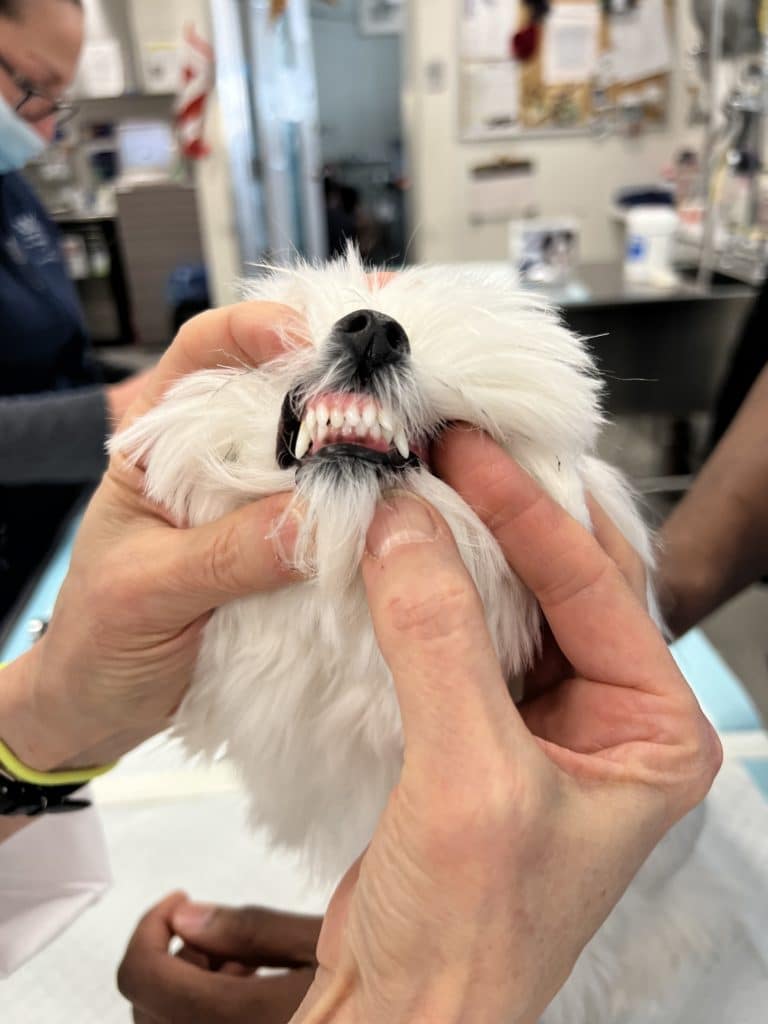
Make an Appointment
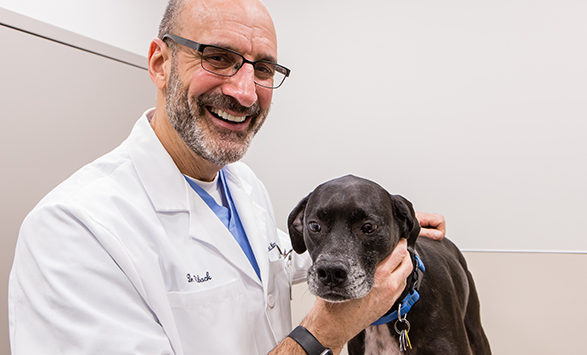
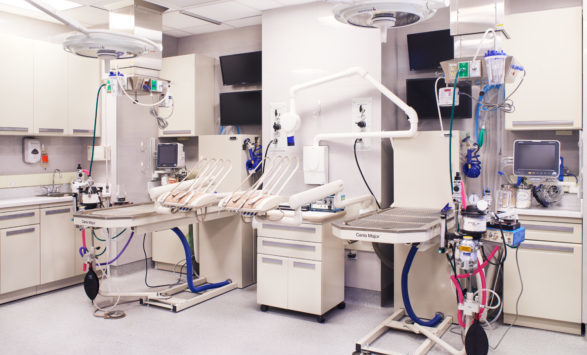
Dentistry & Oral Surgery
AMC's Dentistry Service aims to provide the highest quality dental care to our animal patients and to serve veterinarians in New York City and the tri-state area who need to provide dental services for their clients.
Learn More





























